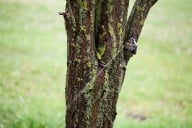You have /5 articles left.
Sign up for a free account or log in.
Graduate assistantships often dictate the pathways for a student affairs professional. Our experience during our masters program can have long-lasting impacts on our functional area choice post-grad school. Oftentimes, our assistantship department is able to send us to at least one professional association conference. Usually, we choose the association and its conference based on the job that we’re doing in exchange for a tuition remission / stipend. However, how many people in their student affairs graduate program learn about what I like to call “the student affairs association acronym soup”? My consulting work enables me to reach a broad swath of student affairs associations including: NACA, NACAS, NACCU, NACS, NACADA, NAFSA, NASPA, ACUHO-I, AACRAO, ACUI, ACPA, CACUSS, SCUP, and EDUCAUSE. I’ve spoken to/with, consulted for, and/or written something for each of these organizations. If you have a question about the majority of student affairs associations, odds are, that I can direct you to the right person or resource. I swim in “the soup.”
However, one question keeps coming up that leads me to wonder whether or not student affairs graduate students are getting exposed to the multitudes of student affairs associations during their time in graduate school. Are there seminars that cover the broad range of associations and how they can benefit each student? Professionally, I know of at least one resource that includes a large number of student affairs associations. CHEMA is the Council of Higher Education Management Associations. As the umbrella organization for more than 20 higher education associations, CHEMA is the perfect starting place for a discussion about our professional associations.
While I have not worked with them yet, I know for a fact that AASHE, ACE, NACE, NODA, NASFAA, NIRSA, NACUBO, NACUFS, and other student affairs associations (and their amazing acronyms) provide valuable resources, networking opportunities, and a melange of awesomeness.
How did you find out about your professional association?
Do you tweet? Let's connect. Follow me on Twitter.








